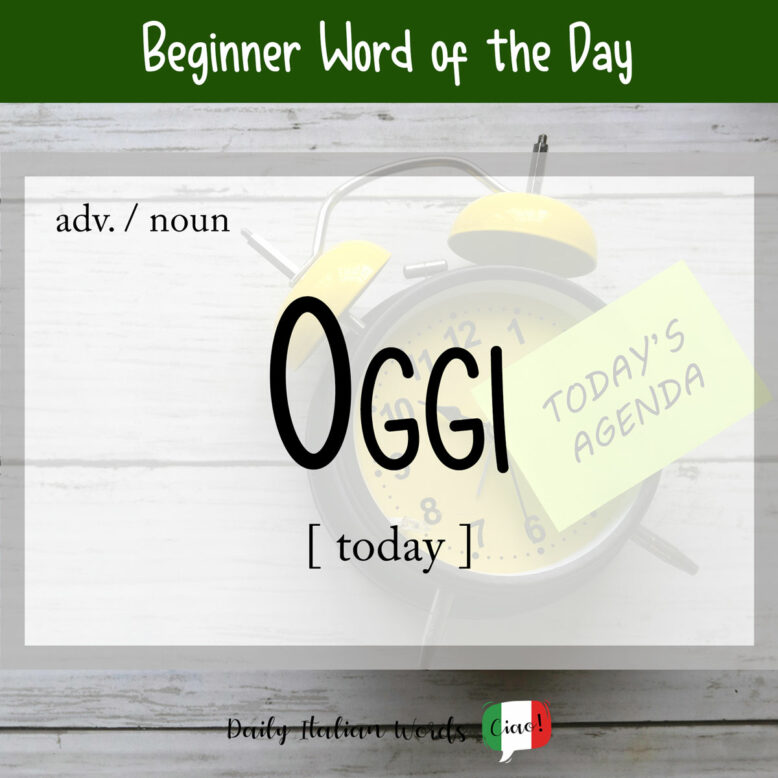The word for today in Italian is oggi. It derives from the Latin hŏdie which itself is a contraction of hoc die (on this day).

Ieri mi hai detto che l’incontro si sarebbe tenuto oggi, ma in realtà ho scoperto che si svolge domani!
Yesterday you told me the meeting would be held today but I found out it’s actually taking place tomorrow!

If you want to stress the fact that you are talking about today as opposed to another day, you can use any one of the following four emphatic expressions:
oggi stesso
today
Mi informerò oggi stesso.
I will find out today.
quest’oggi
today
Quest’oggi andrò a trovarlo.
I will go and see him today.
proprio oggi
today
Proprio oggi dovevi venire?
Did you have to come today?
entro oggi*
by the end of the day
Riesci a finire il testo entro oggi?
Can you finish the text by the end of the day?
*Note: entro stasera (lit. by tonight) is a popular alternative to entro oggi. In Piemonte, you’ll also hear di oggi which in this case can mean either today or by the end of the day depending on the context.
Speaking of di oggi (or d’oggi), it is generally used to describe someone or something that is modern or belongs to the present day, which is the equivalent of today’s or of today in English. For example, i bambini di oggi means the children of today.
È vero che i bambini di oggi sono più viziati di quelli di ieri?
Is it true that the children of today are more spoiled than they used to be?

Oggi also appears in a number of expressions that refer, not to the current day, but to the present time, with a specific focus on how it contrasts with the past. In this sense, the closest translation tends to be nowadays in English.
- oggigiorno = nowadays, these days
- al giorno d’oggi = nowadays
- oggi come oggi = as things stand at present
- oggidì = in this day and age, nowadays
It can also assume the meaning of now when it appears in the expression oggi più che mai (now more than ever).
Oggi più che mai sono convinto di aver fatto la scelta giusta.
Now more than ever I’m convinced that I made the right choice.
Whereas this morning and this evening translate as stamattina and stasera respectively, you’ll often hear Italians say oggi pomeriggio (lit: today afternoon) for this afternoon.
Oggi sposi (lit: today newlyweds) is how you would say just married in Italian.

Below are a few additional time expressions that will come in handy in daily conversation:
- tutt’oggi or a(d) oggi = until now
- dall’oggi al domani = from one day to the next, suddenly
- da oggi in poi = from this day on
- fino a(d) oggi = to this day, to date
Expressions featuring ‘oggi’
Oggi a me, domani a te
Literal meaning: Today to you, tomorrow to me
English translation: We are all subject to the same fate, and whatever happens to one person may, sooner or later, happen to someone else
Meglio un uovo oggi che una gallina domani
Literal meaning: Better an egg today than a hen tomorrow
English translation: Better something modest but certain, than something more desirable but uncertain
Heather Broster is a graduate with honours in linguistics from the University of Western Ontario. She is an aspiring polyglot, proficient in English and Italian, as well as Japanese, Welsh, and French to varying degrees of fluency. Originally from Toronto, Heather has resided in various countries, notably Italy for a period of six years. Her primary focus lies in the fields of language acquisition, education, and bilingual instruction.


